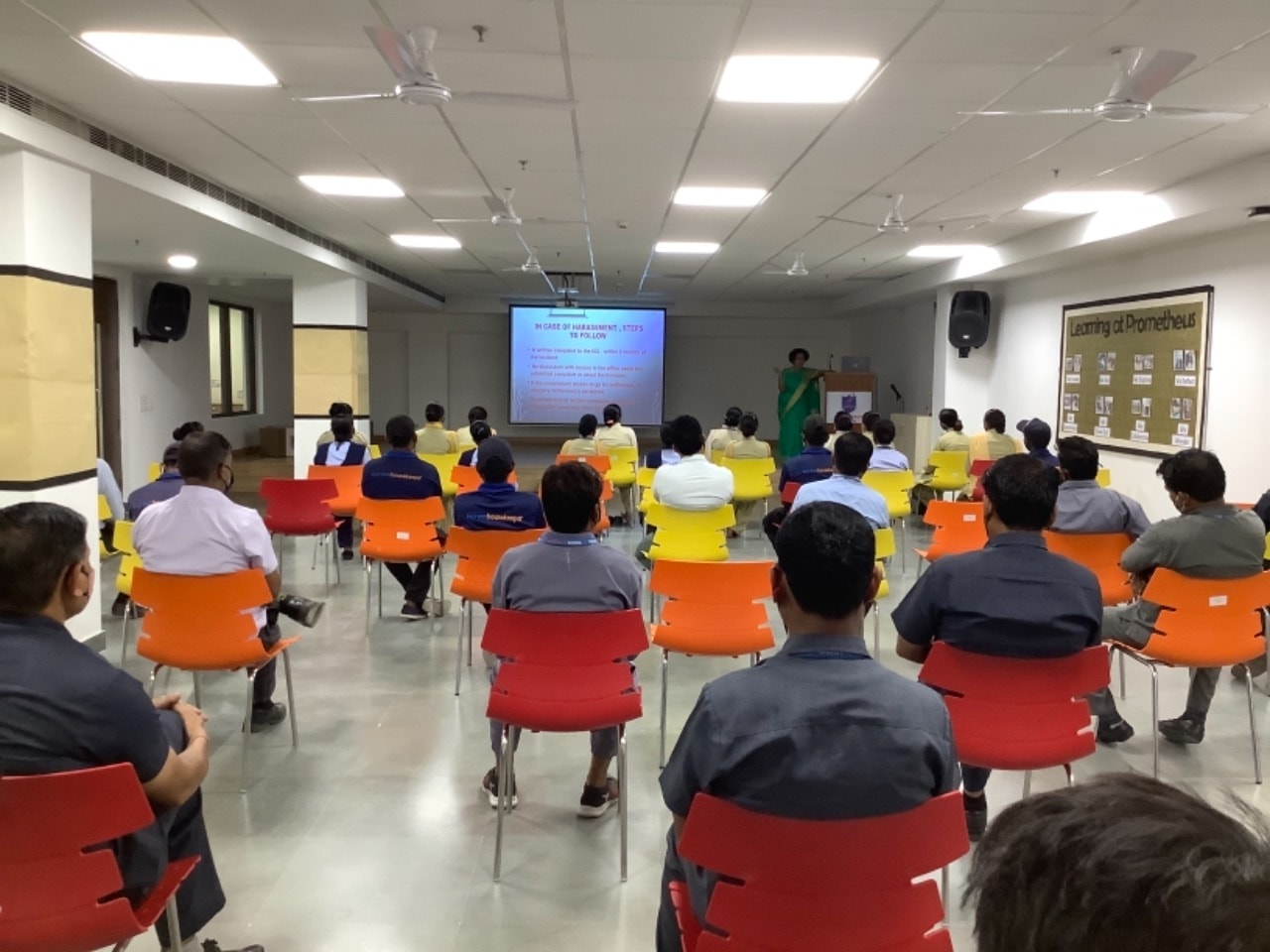BEYOND SAFE AND UNSAFE TOUCH

Child sexual abuse (of boys and girls) is a major concern these days. The media inundates us with various videos, films, and information on safe and unsafe touch. Here, in this article, I am sharing points to keep in mind while educating your child.
- Non-touch forms of abuse are equally, and sometimes even more, traumatic than touch forms of abuse. So, what are the different forms of non-touch abuse? Exhibitionism, the display of inappropriate content, messages, undressing the child without his/her consent, undressing in the child’s presence, stalking, staring in a way that makes the child uncomfortable, and of course, verbal conversations related to sex and sexuality that make the child uncomfortable. Most of the time, children do not share their experience of being abused by non-touch forms and suffer in silence. Sensitize your children that any of these experiences should be brought to your notice so that you may be able to guide them appropriately.
- The psychological impact of any kind of abuse, irrespective of the type, number of times, or intensity, can be long-lasting. The impact may surface immediately or after many years. The impact may be any of the following: a) Significant dip in academic performance. b) Sudden bursts of unexplained aggression. c) Social withdrawal. d) Sudden interest in activities not appropriate to his/her age. e) Sleeplessness. f) Anxiety attacks. g) Post-traumatic stress disorder. h) Change in appetite pattern. i) Headaches. j) Depression. k) Exhibiting trust issues. While some can be effectively handled by you at home, in case symptoms persist, please do not hesitate to seek the assistance of a mental health professional. In many cases, the impact manifests only in adult years regarding establishing enriching relationships.
- Children are mostly taught to be “aware” of rickshawwalas/bus drivers, etc. But rarely are they taught to be aware of abuse from within known quarters. Yes, most abuse occurs within known circles. As a first step, please be aware and accept that any of your loved ones could be an abuser. The reason is mostly, once again, lack of awareness and a lack of responsible behavior. They may not necessarily be “the villain” deserving to be hung or castrated. Once you have accepted this possible reality, very gently and assertively educate your child to be able to share with you any “uncomfortable” experience with any adult. Please avoid specifying your concern about the drivers and peons. Most importantly, if at all, your child does share any such experience with you, take a deep breath. Assure your child that you trust him/her and that you will do the needful; help the child to overcome the discomfort/trauma; approach the concerned person and very firmly address the issue and express displeasure. In case things are beyond your control, please do not hesitate to approach the support of the law.
- As I have brought out in front of you the fact of loved ones as most likely abusers, it also helps to understand the reason behind such acts. Most abusers, especially those indulging in non-touch forms of abuse, are not appropriately psycho-educated on sex and sexuality, and they prefer such unhealthy ways of understanding/fulfilling their curiosity. Many others are simply irresponsible and indulge in such activities for “fun,” oblivious of the trauma caused as a result of their action. Many others derive sadistic pleasure in displaying their “power” over someone not as mighty as themselves. It's rarely the need to fulfill sexual urges. So it would be an added responsibility on your side to consider addressing the abuser too, if he/she happens to be within your known circle. Yes, please avoid educating your child about possible male abusers as there are an equal number of female abusers too. Many cases in my clinic are abuse cases by loved ones, and one of the major obstacles to healing is the feeling that parents have not protected them enough. So this feeling needs to be addressed at the earliest. Your child should believe and trust you to take action on any abuser, irrespective of his/her relationship with you. A difficult path, indeed, to tread… Earnest hope that none of you need to tread on this path.
- An experience of abuse need not necessarily be physically/emotionally painful. Children and adolescents can easily be lured to believe that the activity is enjoyable/interesting/exciting. They can even be convinced and tempted to indulge in them again and again. Sometimes, they realize their folly after a few years and then plunge into guilt and feel worthless and thoroughly ashamed of themselves. So when you hear a child sharing any sexual activity as enjoyable, please do not judge the character of the child. Instead, calmly and firmly educate the child about all the dangers lurking behind these acts. A seventeen-year-old girl came to me with complaints of depression. As sessions progressed, the root cause emerged as her short interest in pornography at a very early age of eight or nine. The burden of guilt of having watched it, having enjoyed and been hooked to it, and the added burden of having hidden all of this from her parents, accumulated over the years, and she had a breakdown at 17. With regular sessions, she soon healed and is leading a normal life now.
Now, the most common question I face from parents is “when do we tell our kids? What all do we need to tell our kids?” As parents, you advise your kids about various things – say, you are advising them about eating open roadside food - to a two-year-old, you would probably say, “Oh! Dear, that’s not good.” To a ten-year-old, you would probably say, “That food could be unhealthy, and you may fall sick.” To a fifteen-year-old, you may explain further, “Look at the water being used to wash the plates; it's so unhygienic. The food could be contaminated, and you may be affected with jaundice.” What are we understanding here? The subject is the same, but the depth of education varies with age, but the same message is being conveyed.
The same thing holds good for sex education and educating your child about abuse. Need-based; age-appropriate; healthy orientation with an objective to empower the child and not instill fear and suspicion in the child.
The parting message I have for you all is, let us remind ourselves that the world is not a horrible place. It is a beautiful haven with a huge population of lovely people and a minuscule number of abusers. If only every one of us who are part of the huge population is proactive, we will be able to overcome this

Mahalakshmi Rajagopal
Mahalakshmi Rajagopal, Holistic Wellness Practitioner, Counsellor and Healer, Trainer, Certified Social Auditor and Certified POSH Trainer, is a seasoned interventionist, offering counseling, therapy, life coaching as well as healing based on the client's need. She offers both face to face as well as online sessions.
Related Blogs
No related blogs available.
